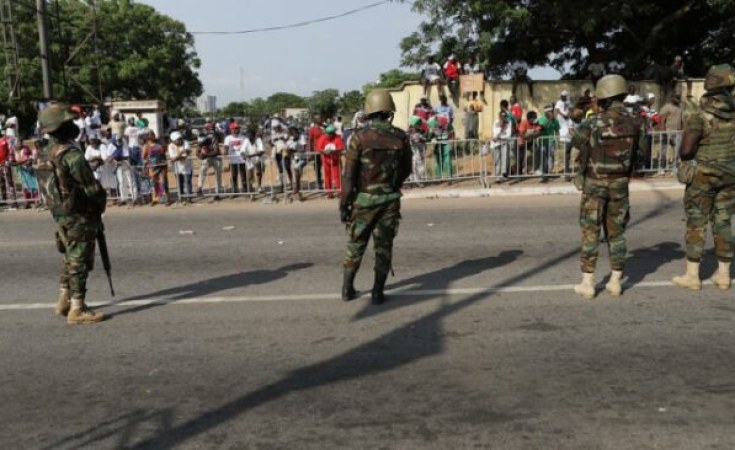The International Monetary Fund (IMF) officials will on Wednesday, July 6, 2022 officially kick-start negotiations with the government for an economic programme.
The visit will primarily focus on data gathering from all the relevant sectors of the economy.
The IMF officials, comprising senior officers from the Fund and local staff will meet the Finance Ministry, the Economic Management Team and the President during their stay.
Finance Minister, Ken Ofori-Atta, is expected to lead the government team to negotiate with the team and deliberate on the modalities for a package to support the country's economy.
The visit will also afford the team get some understanding of government's home grown programmes aimed at stability of the economy.
After the preliminary engagement, the government is expected to put forward an official letter from the Ministry of Finance, Bank of Ghana on what kind of programme that the government want.
In a related development, Bright Simons, Vice President of IMANI Centre for Policy and Education, in a paper on the Ghana's IMF programme said, although IMF had given a hint to broker a deal with Ghana, an appetite for a deal was not enough.
He said even when an agreement was in hand, implementation could be bogged down by policy and programme disagreements, as had been the situation with Ethiopia since approval of a $1.5-billion programme by the IMF Board in 2019.
Mr Simons said similar issues had disrupted the $6 billion Pakistani programme adding that Zambia continued to have programme initiation challenges despite talks with the Fund dating from 2016.
"Researchers have tracked the time it takes the IMF, historically, to intervene in an ongoing financial or economic crisis. They have come up with an average of several months even for the relatively more straightforward standby agreements. Ghana's year-long dilly-dallying fits this pattern," he said.
Brace up for the Debt Service Suspension Initiative
According to Mr Simons, Ghana could have taken advantage of the Debt Service Suspension initiative offered by the Bretton Woods Institutions, a G20 led process to offer temporary debt relief to countries struggling with their debt service load.
He said countries that qualified for the DSSI (it required a preliminary IMF programme) were entitled to receive further support. 43 countries, many with far less onerous debt burdens than Ghana, benefitted from $5.7 billion in relief.
"Mysteriously, the Finance Ministry refused to allow Ghana to participate citing likely interference with the country's commercial borrowing plans. Now that the DSSI window has closed, the government will be compelled to consider the G20 Common Framework," Mr Simons said.
He said Chad, Ethiopia and Zambia recently asked for support under the Common Framework and IMF's attitude had been that these countries must apply the framework to structural reforms and not just debt service suspension or relief, stressing that "Ghana may have to confront similar treatment soon."
Staff Agreement not end of the road
Mr Simon said even after hammering out the terms of an MoU, the Board of the IMF still had to approve.
"Even after a programme agreement is in force, disbursements may need further board approval. Kenya for instance is still waiting for board approval after IMF staff signed off on a disbursement in April. The IMF board, like all boards meet at scheduled intervals to address tabled matters," he said.
Ghana needs a shorter-term remedy besides IMF
Mr Simons said Ghana needed short-term strategy besides the IMF programme, to deal with the economic challenges facing the country to shore up the economy.
He said there had been reports in the banking industry of the government writing to lenders and holders of guarantees to provide extensions to timelines for due payments.
According to him, the liquidity crunch facing the government was now so intense that the IMF announcement appeared to have been made principally to give comfort to dithering prospective short-term lenders.
He said the government had been chasing syndicated loans from commercial banks for a while now, alleging that "Some of these banks have begun getting cold feet and told the government that an IMF agreement would make lending more palatable."
"This sudden u-turn in favour of IMF program is thus an attempt to seduce commercial borrowers. It would be wise for the government not to underestimate the markets and start looking for alternatives in cuts to discretionary spending. Equally daunting is how the government can sustain domestic debt servicing in the short-term without central bank financing. Current liabilities falling due this quarter significantly outstrip revenues. Analysts insist it is crunch time," Mr Simon, said.


